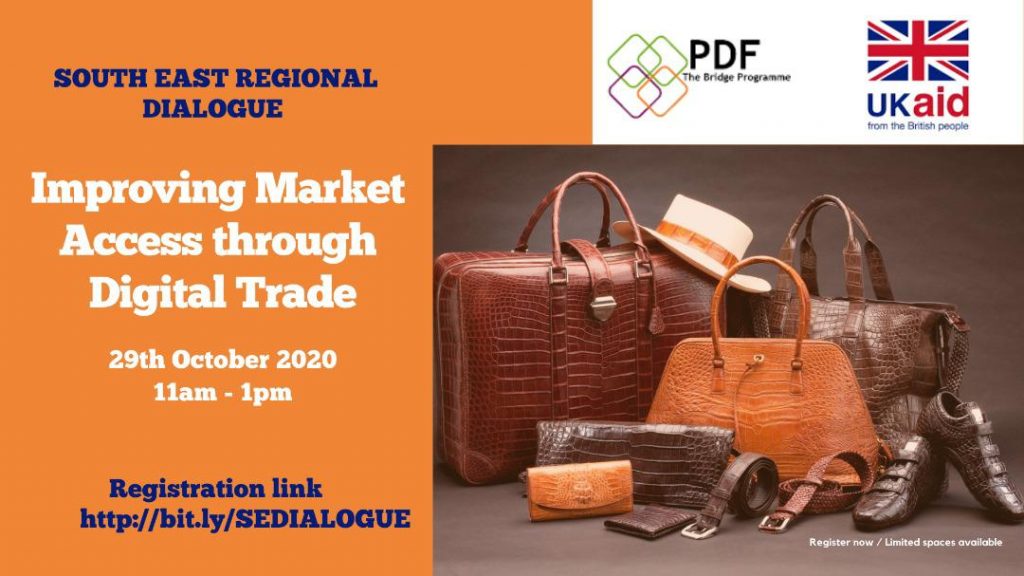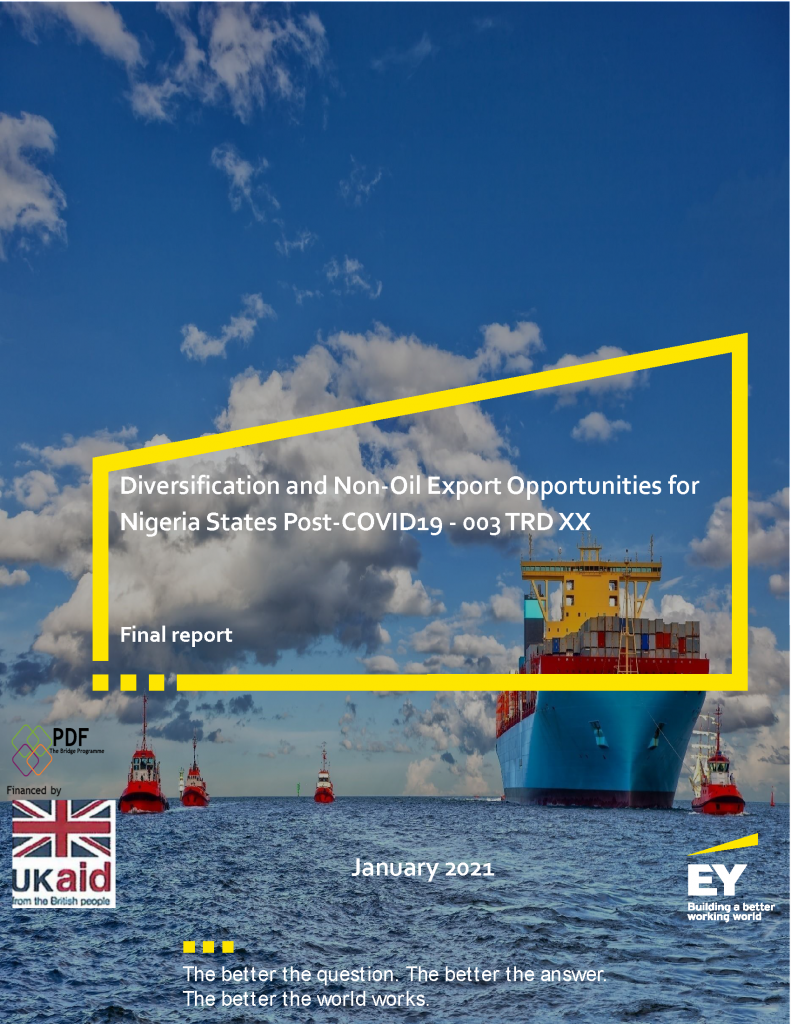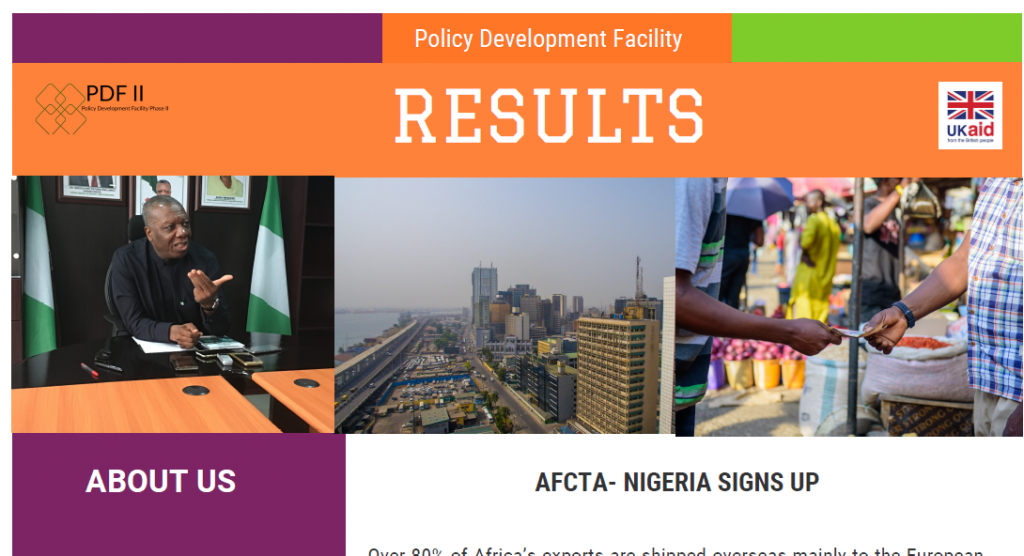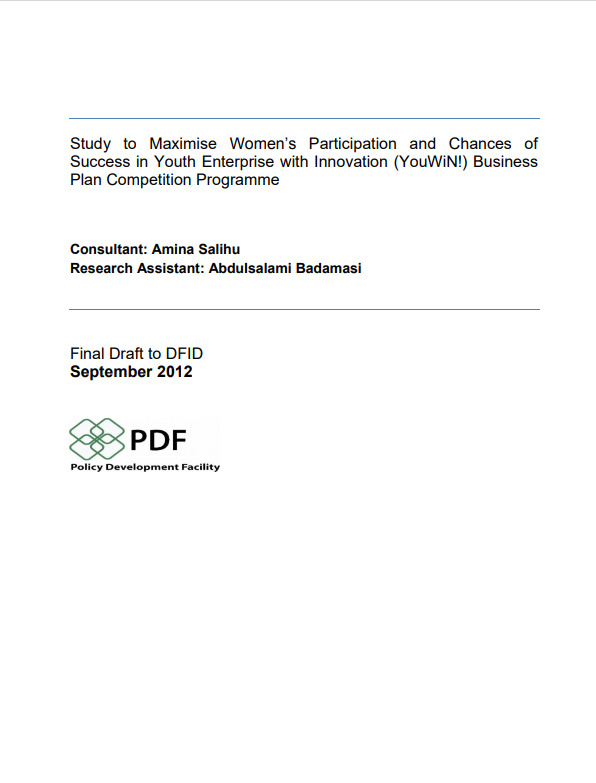The lack of improvement and deterioration in Nigeria’s export trade performance rankings such as measures of time and cost associated with exporting and importing a standardized cargo of goods reinforces the need for Nigeria to undertake urgent and extensive reform to improve its trading across borders performance. This research provides immediate, medium and long term reform options.
REFORM OPTIONS FOR REDUCING THE TIME, COST, AND NUMBER OF PROCEDURES FOR TRADING ACROSS BORDERS IN NIGERIA
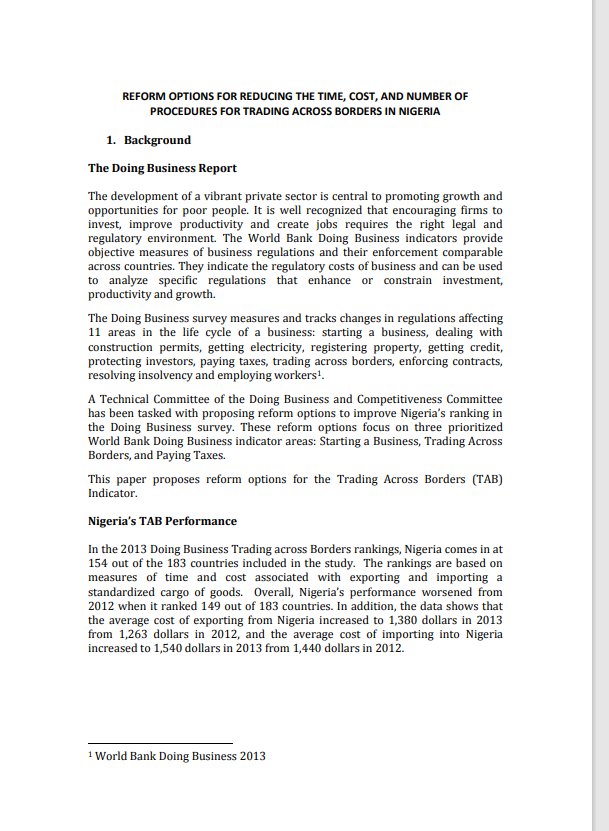
Associated resources
This dialogue explores the alternative ways to provide market access to the southeast business hubs from Aba through Onitsha. COVID19 has caused businesses to reimagine their trade value-chain working actively to diversify roles. This dialogue explores ways that new technologies can help bridge the gap between buyers, sellers, and manufacturers.
This report presents a market analysis of the 22 identified products of the Zero-oil initiative providing a comprehensive analysis on the export potentials, key markets, existing value chain, and quality requirements of six (6) key products namely; Soya, sugar, rubber, leather, cocoa beans, and ginder.
PDF II held a two-day capacity building training themed: “Capacity Building for Banks and DFIs”. This is designed to explore access to finance challenges, awareness campaigns, and opportunities that non-oil exporters face with banks in accessing finance. The capacity building covered topics such as Export Industry Regulations and Documentations, payment methods and trade finance instruments, Handling export finance options, managing export risks, understanding the franchising potential etc.
Nigeria signed up to the AfCFTA on the 7th of July, 2019. This outlines how PDF contributed to the process that led up to the signing.
This is a study carried out to provide the management of YouWiN with an improved approach they can adopt to encourage women’s participation in the business plan competition. It was conducted in 2012 with the support of FCDO (formerly DFID). Based on the findings and lessons from the study, recommendations were made for consideration by the management of the YouWiN programme to increase the number of women participating, winning grants and running sustainable businesses under the Youth Enterprise with Innovation in Nigeria Programme (YouWiN!)

